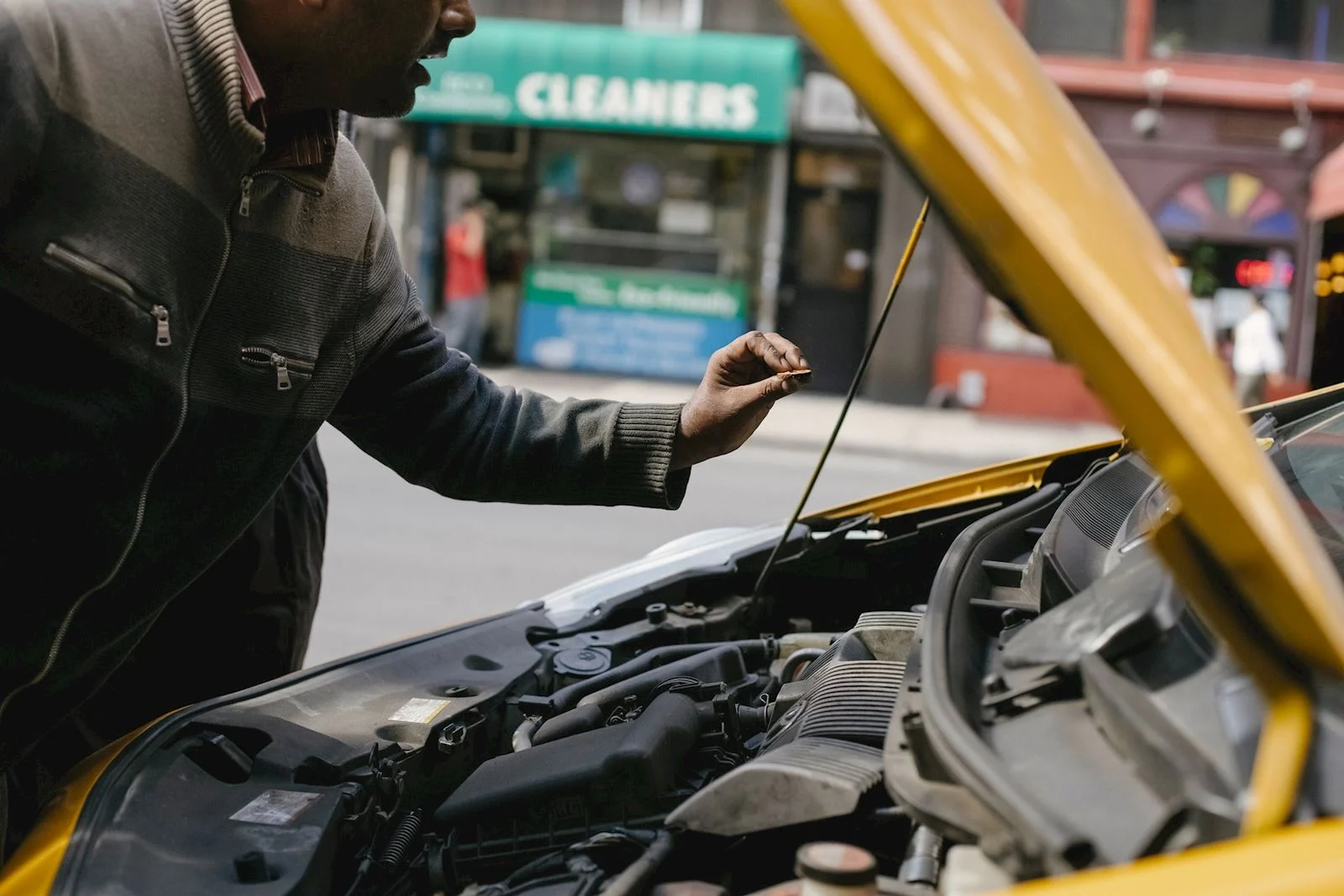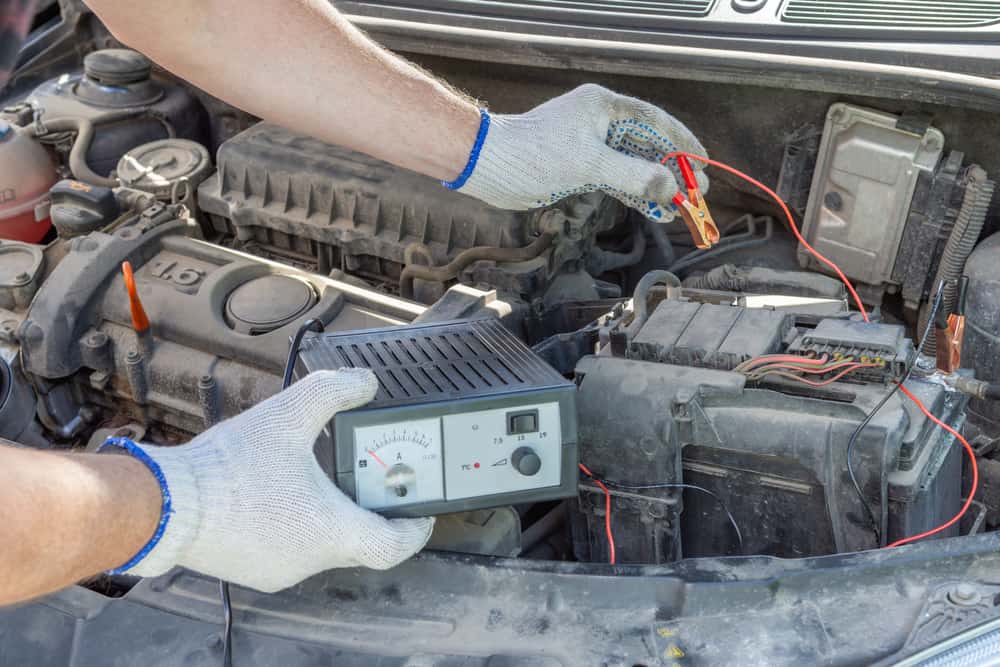Are you hearing a clicking sound when you turn the car’s key in the ignition? Or maybe your car won’t start at all. The worst is when this issue happens more than once–again and again, over a period of time.
Unfortunately, these are signs that your car’s battery is draining or already dead. When this happens, it needs a recharge or maybe a replacement.
It can be confusing trying to figure out why your car battery keeps draining, especially when the car is off. There are many potential causes, and it could be any number of them.
In this blog post, we’ll go over what can drain a car battery when it’s off, what steps you should take if the car’s battery does happen to run down too much, and what you can do to prevent car battery draining problems in the future. We want to help you get back on the road as soon as possible.
Let’s get started!
Table of Contents
What Can Drain a Car Battery When It’s Off?
When you go out to start your car, and you hear nothing but silence, your car might have a dead battery. No one likes to be late for work because they are stranded on the side of the road or because their car is stuck in the garage. It can feel incredibly overwhelming, especially when you don’t know exactly what is wrong.
Car batteries can be drained for numerous reasons when they’re off. The most common reasons that your car’s battery might drain include the following possibilities:
1. Lights Left On Overnight
Leaving your car’s headlights or interior lights on (or even your glove box lights on because the door is left open!) overnight can be an easy mistake to make. However, the cost of this situation could be high, as the battery can drain from being left on for too long.
Some newer vehicles have a system that cuts the power to the headlights and interior lights after the vehicle has been off for a while, which saves battery juice. But older vehicles do not have that same luxury. It’s up to you as the driver to remember to turn off the lights.
2. Corrosion Around Battery Terminals
Corroded or dirty terminals are one of the most common causes of car battery drainage. Dirt or corrosion builds up around them and prevents electricity from flowing freely through the circuit. When this happens, it doesn’t allow your car to acquire a fully charged battery.
You or a mechanic can easily remove the car battery from its compartment to clean it. You do this by using a wire brush and a baking soda solution. This should restore the car’s battery’s ability to charge to full capacity again.
3. Faulty Alternator Diode
The alternator diode is an electrical component that helps to regulate the car’s battery, measuring the car’s electrical current and converting AC power (alternating current) into DC power (direct current). You will generally have a maximum of around six diodes on your vehicle’s alternator.
If this component is faulty, it won’t be able to regulate the car’s battery and won’t allow your alternator to recharge your battery when you turn the car on. Of course, this situation can lead to your car battery draining.
You will need to visit a mechanic in order to properly test and diagnose a faulty alternator diode – at which point, the mechanic can also replace any defective parts to get your car back up and running once more.
4. Parasitic Drains

Parasitic drains are tiny electronic devices that are connected to your car’s electrical systems such as security alarms, car alarms, car radio, GPS trackers, etc. These draw a small amount of power even when the car isn’t on which slowly drains the car’s battery over time.
Some newer cars have a second battery that is meant to operate these accessories. However, most cars don’t use a second battery and rely solely on the main battery. Be sure to check for any additional accessories like these every once in a while and remove any that you don’t need.
5. Extreme Temperatures
Heat or cold can affect the car battery’s performance, with extreme temperatures causing it to drain faster. This is because car batteries are made up of lead acid and lead sulfate crystals, which start to form a build-up when exposed to high or low temperatures. If your car is parked in an area with extreme temperatures for a prolonged period of time, it could cause the car battery to drain.
It’s important to be aware of the car’s environment, as this can have a direct impact on its battery. Make sure the car isn’t exposed to extreme temperatures (above 95 degrees Fahrenheit or below -20 degrees Fahrenheit) and that it’s parked in a well-ventilated area.
6. Old Battery
If your car’s battery is quite old, it can start to become weak and prone to draining. This is because lead acid batteries have a limited lifespan – usually around three to five years.
It’s important to regularly check the car’s battery and replace it if necessary. A car mechanic will be able to give you an accurate estimate on how much time your car has left before needing a replacement.
7. Faulty Wiring, Loose Cables, and Defective Fuses
Faulty wiring, loose cables, and defective fuses are other common reasons for car batteries draining quickly. When the car isn’t running, these wires still draw power from the battery which leads to it draining faster than usual. To fix this issue, make sure all the car wiring is secure and any faulty fuses are replaced.
8. Worn-Out Tensioners
Another thing to watch out for are tensioners in the electrical system that are old and spent. Worn-out tensioners can cause car batteries to drain faster than usual, as they draw power from the car’s battery even when the car isn’t running.
That’s why it’s important to get your car checked regularly at a car mechanic and replace any worn-out tensioners as soon as possible in order to prevent car battery draining.
How to Jumpstart a Dead Car Battery
If your car battery is completely drained, then you can use jumper cables or a car battery charger to jumpstart it. Make sure you follow the car manufacturer’s instructions on how to do this safely and correctly.
Once the car is running, be sure to drive it for at least 20 minutes in order to fully charge the car’s battery and make sure everything is working properly again.
How to Prevent Your Car’s Battery from Draining When It’s Off
When it comes to car batteries, there are many factors that can cause them to drain quickly. The trick is to ensure that you take precautions to prevent your car batteries from draining. Here are many things you can do.
Check Electrical Systems
One thing you will want to do is make sure that all the car’s electrical systems are functioning properly on a regular basis. This includes checking that there is no faulty wiring and that there are no loose cables or defective fuses. It would be a smart idea to invest in a voltmeter in order to check that the battery is indeed charging like it should.
Watch for Extreme Temperatures
Additionally, you will want to be wary of the car’s environment, as this can have a direct impact on its battery. Make sure the car isn’t exposed to extreme temperatures and that it’s parked in a well-ventilated area when needed. This means parking it in a garage whenever possible.
Turn Off the Lights
Also, take care of basic precautions such as turning off the lights and other electronic devices before shutting off the car engine. This will help ensure that no power is being drawn from the battery while it’s not running. Shutting all doors tightly after each drive also helps prevent any unnecessary draw on the car’s battery which could lead to a weak or drained one over time.
Keep Corrosion at Bay
Finally, since car batteries are susceptible to corrosion build-up due to the sulfuric acid and lead sulfate crystals built up over time, you will want to keep that corrosion at bay.
This can cause the electrical system not to make a strong connection, so make sure you keep the battery’s terminals clean and free from any corrosion. Do this by using a car battery cleaner or de-sulfating solution and a wire brush.
Conclusion
Car owners must be vigilant in order to keep their car’s battery from draining when the car is off. A car battery draining quickly can be caused by a number of different things – from extreme temperatures, old batteries, faulty wiring, loose cables, fuses, tensioners, and even parasitic drains from electronic devices.
If you suspect a problem with your car’s battery or think it needs a replacement, don’t hesitate to contact a professional car mechanic for some help. With their expertise and knowledge of electrical systems, car mechanics can help you diagnose the problem and recommend a battery replacement if necessary.
What problem seems to be affecting your car battery? Let us know in the comments below!
